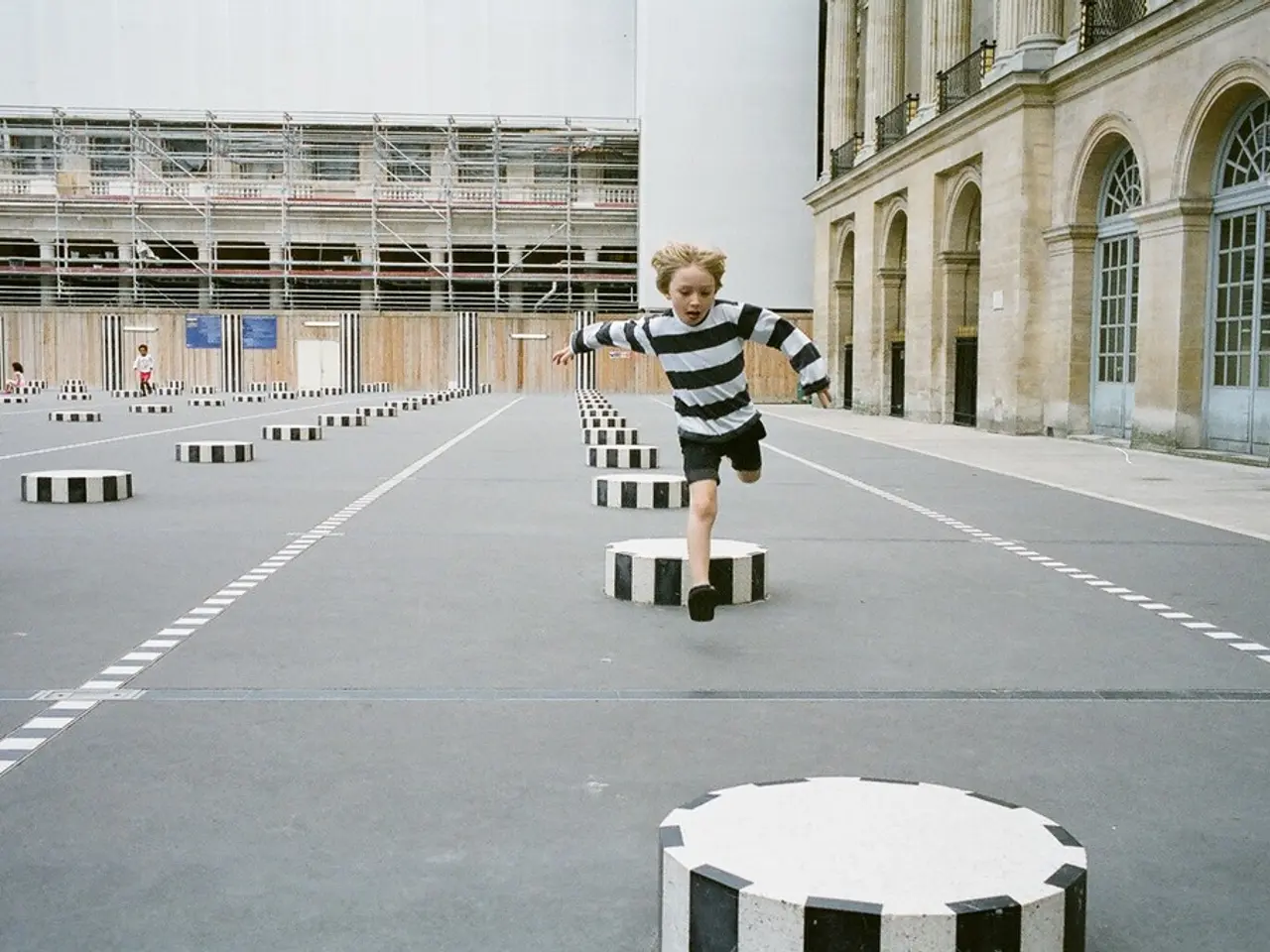Enhancing Preschool Preparedness in the Early Stages of Education
Nurturing School Readiness: Essential Skills for Kindergarten Success
Preparing children for a smooth transition into kindergarten is a crucial task for parents and caregivers. The early learning experiences from birth to five years of age significantly influence a child's ability to learn and succeed in the future.
School readiness encompasses a child's capacity to adapt to the structured learning environment of school. It is marked by a child's ability to apply knowledge, demonstrate social-emotional skills, engage in problem-solving and critical thinking, and maintain a positive attitude towards learning.
Children who may struggle with school readiness may exhibit signs such as frustration, difficulty following instructions, relying on parents for self-care tasks, and poor expressive and receptive language skills. They may also have trouble understanding consequences, sitting still, and engaging in new activities.
To help children develop these essential skills, parents can implement specific strategies at home.
Language and Literacy Development
Reading together daily can help build vocabulary and comprehension. Using alphabet books, puzzles, and games can aid in recognising letters and numbers. Encourage your child to write their name, starting from tracing to freehand.
Early Math and Cognitive Skills
Incorporate numbers into daily activities such as counting steps or snacks. Encourage problem-solving and curiosity by exploring new places and asking questions.
Social-Emotional Skills
Promote cooperative play and social skills through group activities and turn-taking. Teach self-regulation strategies and patience.
Physical and Motor Skills
Provide opportunities for running, jumping, climbing, and playing sports to develop coordination. Encourage fine motor skills through activities like using cutlery or manipulating fastenings on clothing.
Self-Help and Independence
Practice dressing and undressing with child-friendly tools. Establish consistent toileting routines including wiping, flushing, and handwashing. Teach mealtime skills like using utensils and opening containers. Give age-appropriate household tasks to build responsibility and confidence.
Establishing Routines
Create daily structured routines for meals, sleep, hygiene, and learning time to help children adapt to school schedules.
Undeveloped social skills can make it hard for children to get along with their peers and participate in group activities. To help children build social skills, schedule play dates to help your child build social skills and engage in cooperative games.
Children who attend school readiness programs generally enter kindergarten with the skills needed for school success, have better social adaptability, and are more likely to make good progress and less likely to be retained.
Children with difficulties in executive functioning often fail to prepare for the day and forget important tasks. Teach your child how to work with his fingers to build his fine motor skills. Fine motor skills involve using the fingers to manipulate small objects, such as writing with a pencil, tying shoelaces, etc.
By encouraging these skills playfully and patiently, we support children's confidence and readiness for the structured learning environment of school.
- Encouraging social-emotional skills development at home through cooperative play, turn-taking, and teaching self-regulation strategies can aid in preparing children for a smooth transition into kindergarten, especially in building necessary skills for getting along with peers and participating in group activities.
- To support children's personal growth and school success, parents can introduce education-and-self-development activities at home by reading together daily, encouraging learning through exploration, practicing self-help and independence skills, and focusing on language and literacy development, early math and cognitive skills, emotional development, and physical and motor skills.




